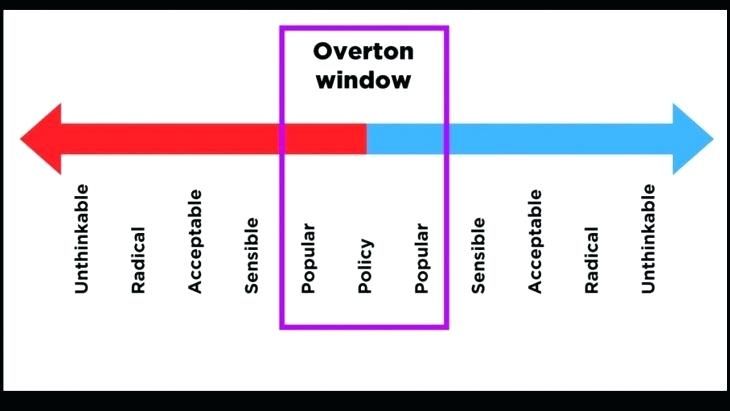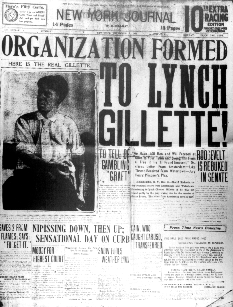Judas Makes a Comeback
From The New CriterionLast month, a man once so hated, especially in the historically Christian countries of Europe and the Americas, that he was widely regarded as the the most evil man ever to have lived experienced something of a rehabilitation in the popular media, who were once among his principal detractors. What? you ask. Has The New York Times finally found something good to say about President George W. Bush? No, no, nothing like that. As if! But one of Mr Bush’s predecessors as the civilized world’s most notorious and iconic villain, Judas Iscariot, was championed by the Times among others in the media as a wronged man, at the very least “a victim of a theological libel which helped to create anti-Semitism” as one scholar has put it — even, perhaps, a misunderstood hero who was a favorite of Jesus’s and only doing his Lord’s bidding in “betraying” him. This conclusion was reached on the basis of a newly-translated Gnostic text, known as the Gospel of Judas, which was written in Coptic and dates from the fourth century of the Christian era but is presumed by most scholars to have been translated from an earlier Greek original.
“The text gives new insights” — or so “scholars reported,” according to the Times — “into the relationship of Jesus and the disciple who betrayed him.” Well, yes and no. Some scholars came close to saying something like this, but most cautioned that any such “insights” had to be heavily qualified by the fact that the so-called “Gospel” was not contemporary either with the life of Jesus and his disciples or with the other gospels and even in its presumptive but no longer extant Greek version, it dates from a century or so later. It includes, along with its exoneration of Judas, anachronistic details suggesting that whatever else the document may provide it is not “new insights” into the historical events of Jesus’s life. As Dr Simon Gathercole, a New Testament scholar at the University of Aberdeen, told The Times of London, the supposed gospel “contains a number of religious themes which are completely alien to the first-century world of Jesus and Judas, but which did become popular later, in the second century AD. An analogy would be finding a speech claiming to be written by Queen Victoria, in which she talked about The Lord of the Rings and her CD collection.”
The Times of New York was less circumspect, going on to gush of how “the most revealing passages in the Judas manuscript begins [sic], ‘The secret account of the revelation that Jesus spoke in conversation with Judas Iscariot during a week, three days before he celebrated Passover’” — a conversation in which Jesus is supposed to have told Judas that he “will exceed all of” the other disciples, “For you will sacrifice the man that clothes me.” This enigmatical statement, we are helpfully informed, refers to Gnostic teachings. In their light, it seems, “Jesus meant that by helping him get rid of his physical flesh, Judas will act to liberate the true spiritual self or divine being within Jesus.” Well, it’s a point of view. But “revealing”? Only if you’re taking it as gospel. Of course there might be other reasons for doing that than the compelling nature of the document itself. Though the Gospel of Judas was among Gnostic texts denounced by St Irenaeus in Contra Haereses in A.D. 180, there is nothing distinctively Gnostic about the idea of Judas’s innocence. I remember once reading a medieval English lyric of the 13th or 14th century, presumably written without the benefit of the Gospel of Judas, in which the betrayer was imagined as a simpleton who was entrusted with the disciples’ treasury and who lost it. So fearful was he of exclusion from the society of the intimates of Jesus, whom he idolized, that he only accepted the Roman 30 pieces of silver, not understanding what it was for, in order to make up the loss.
Obviously different views of Judas throughout the ages have been possible from within Christian orthodoxy, but the writers for the New York Times, John Noble Wilford and Laurie Goodstein, led the way in seizing the discovery of this ostensibly Gnostic text as a stick with which to beat the orthodox.
The Gnostics’ beliefs (they write) were often viewed by bishops and early church leaders as unorthodox, and they were frequently denounced as heretics. The discoveries of Gnostic texts have shaken up Biblical scholarship by revealing the diversity of beliefs and practices among early followers of Jesus. As the findings have trickled down to churches and universities, they have produced a new generation of Christians who now regard the Bible not as the literal word of God, but as a product of historical and political forces that determined which texts should be included in the canon, and which edited out.
Where to begin with this mishmash of half-truth and absurdity? The Gnostics’ beliefs were always viewed as unorthodox by those who were not Gnostics themselves, since it was in relation to the Gnostics and other heretics that orthodoxy was defined in the early Christian centuries. That’s why it is especially ridiculous to imply that people didn’t know about “the diversity of beliefs and practices among early followers of Jesus” in general or the Gnostic heresy in particular until quite recently, with “the discoveries of Gnostic texts.” Anyone with the merest smattering of knowledge of church history has always known about these things. Moreover, no scholar this side of the Bible department at Bob Jones U. has thought of the scriptures as “the literal word of God” for at least a hundred years — and those who do so think of them remain as stubbornly attached to their point of view as ever, so far as I know. Whence, then, comes this supposed “new generation of Christians” — can the Times name even one? — whose faith has been “shaken up” by the shocking discovery that the Bible is “a product of historical and political forces”?
There is no surprise, of course, in finding theological and historical illiteracy at The New York Times, but why this attempt to write so far beyond the authors’ competence in the first place? Is it merely an attempt to dignify with a bit of pseudo-intellectual claptrap the tabloid impulse to headline: “Judas Was Innocent”? Admittedly, it’s a great story but, like other tabloid items, one of less interest than the headline would suggest. That’s why it’s hard to avoid the suspicion that, at the Times and elsewhere in the media, Judas was chiefly interesting not for his misunderstood self but as another weapon to use against Christian believers — or as another brick in the wall meant to screen decent folk from any but the caricature view of religion which the media themselves have been so assiduously promoting recently (see “Manicheanism à la Mode” in The New Criterion of November, 2005). Holding the views that they do, the media obviously have an interest in anything which might tend to show not only that Christians had got it wrong, but that they had been systematically getting it wrong for 2000 years. That’s what creates the news value of this and other stories that get more play than anyone without this anti-religious bias would think they were worth. Here, for instance, is how Mr Brian Williams, by some orders of magnitude a greater intellectual vulgarian even than Mr Noble Wilford and Miss Goodstein in his enthusiasm for trashing religious belief, put it on the “NBC Nightly News” of April the 7th:
By one way of looking at this past week, would anyone blame you if your faith in some long held beliefs is tonight permanently shaken? Just listen to three news items that came across our desks here during this past week. On Tuesday, we learned that an oceanographer at Florida State University is now questioning whether Jesus ever really walked on water. His theory, surface ice might have formed on the Sea of Galilee at that time of year, which would throw a lot of the Bible into confusion. Then, on Thursday, we learned that scientists believe they’ve found the missing link between sea to land animals. They say it shows the evolution from fishes to folks who walk around. And again yesterday, we learned that a manuscript, the only known text of the Gospel of Judas, has surfaced after 1,700 years. It’s a bit beaten up, but it shows Judas was well-regarded by Jesus and perhaps not a treacherous man after all. Now, those who believe may choose what not to believe in all these cases. It is a lot to take in. In all, where the news is concerned, it’s been a week of biblical proportions.”
I’m surprised that he didn’t also mention the news, which broke in the same week, of the scientific study purporting to show that prayers for the sick do no good. The New York Times was among the first to report that story and later published a self-parodic op ed by an Episcopal priest named Raymond J. Lawrence saying that “responsible religious leaders will breathe a sigh of relief at the news that so-called intercessory prayer is medically ineffective.” Well of course they will — just as they will when they finally get the definitive proof that God doesn’t exist and, with it, the ultimate confirmation of their own unbelief. The sighs of those to whom the Reverend Mr Lawrence ministers at the New York- Presbyterian Hospital/Columbia University Medical Center are likely to be of a different character.
The subtext of such stories, as of Mr Williams’s bumptious and ungrammatical summary of them above — for which, by the way, I am indebted once again to the excellent Media Research Center of Alexandria, Virginia — goes like this: See? Now are you satisifed that all that religious nonsense has been disproved and there is nothing more to keep you simpletons who cling to your shreds and tatters of faith from becoming progressive liberal secularists like us? Like, that is, Mr Williams and his co-religionists at the New York Times and elsewhere in the media. The alacrity with which they jumped on the bandwagon of Judas’s exoneration was thus to be expected. The question of the former villain’s guilt or innocence naturally became, as everything tends to become in the media, one of which side you come down on in the culture wars. Like all wars, these begin with stories. The heroes in the stories of one side are the villains in the stories of the other. That is why Judas’s fellow inhabitant of popular history’s rogues’ gallery, the religious enthusiast George W. Bush, won’t be joining him any time soon on the outside — though many of the the stories about him may be expected to be similarly lacking in news value.
Here, for example, is the first thing I saw when I picked up my Washington Post this morning, the top story above the fold on the front page: “Lacking Biolabs, Trailers Carried Case for War” and the sub-head: “Administration pushed notion of Banned Iraqi Weapons Despite Evidence to the Contrary.” No need to read any further there then! Not only has that or some similar headline already appeared in the Post dozens of times over the past three years but a moment’s thought will persuade us that it wasn’t news even the first time it appeared. “Evidence” in intelligence matters will always, or nearly always, be conflicting. Therefore any decision based on intelligence must be made “despite evidence to the contrary.” None of Mr Bush’s critics is in a position to weigh, as he had to do, the preponderance of the evidence as it existed in early 2003 and decide which bits to believe and which not to believe. Articles like this one really ought to carry the headline: “We Hate and Mistrust George W. Bush,” for that is all they mean. And if you don’t know that already you haven’t, as the bumper sticker says, been paying attention. Irrespective of the knowable facts, if any, some people are just doomed by the media model to villainy, as others are strongly pushed towards heroism — or if, like Judas, they were villains according to a rival model, towards rehabilitation.
Maybe this is the reason why the Bush White House has been so oddly reluctant to defend itself against the constant drumfire of criticism from the media. What, after all, is the point? The stigmata of Judas are upon the president, and even his infrequent and stumbling attempts to answer back are now regarded by big media as scandalous. Just look at the outcry in The New York Times and elsewhere which greeted the news that Mr Bush himself had authorized the leak by I. Lewis, “Scooter,” Libby of information from hitherto classified National Intelligence Estimates to, er, The New York Times. Here’s what The New York Times’s Maureen Dowd thought about the president’s offer of this exclusive to her paper: “If W. wants the information out, it’s good for the country to make it public. If W. doesn’t want the information out, it’s bad for the country to make it public. L’état, c’est moi ” To anyone not soaring on the wings of outrage, the analogy to Louis XIV would require an impossible leap of logic. Well, we might qualify, maybe not the whole état but just the bit of it concerned with deciding which classified information it will be good for the country to know about and which it will not. Someone less rabidly hostile to the president, might have written instead: “If W thinks it’s good for the country, he wants the information out. If W thinks it’s bad for the country, he doesn’t want the information out.” There’s a slight but significant difference there, I think you’ll agree.
No one supposes that everything in every secret document is equally secret, and no one — including the special prosecutor, Patrick Fitzgerald — has yet come up with any reason for supposing that even the leaking of Mrs Joe Wilson’s identity as a CIA agent, which Mr Libby did not claim to have been authorized to disclose, was any kind of threat either to the nation’s security or to her own. True enough, not just anyone can decide what it is OK to leak and what it isn’t, but the President isn’t just anyone. And if the President can’t decide, who can? As the Times reporters, David Johnston and David E. Sanger, themselves acknowledge, “the president has the authority to declassify information.” The whole case against him in the press seems to boil down, as it so often does, to one of lèse-majesté against the press itself. Certainly the Times report that the administration was trying “to quell the furor over the leaking of sensitive prewar intelligence on Iraq” could only have been referring to the “furor” of those who, like the Times itself and others in the big media have been continuously furious for three years, and who are always looking for new things to be furious about. This is news? When is a furor not a furor? Under the same circumstances that a scandal is not a scandal — namely, when it is all on one side of an issue. (See “The Plame Game” in The New Criterion of September, 2005.)
Even though, arguably, it could not have been a leak if it was authorized, the fact that it was treated by the administration itself as a leak by being made secretly and anonymously provided its enemies with all the ammunition they needed and Mr Fitzgerald with the opening to proclaim, in rebutting Mr Libby’s claim, that the White House had “publicly staked its credibility on there being no White House involvement in the leaking of information about Mrs. Wilson.” Though what Mr Libby was authorized to reveal to the Times’s reporter, Judith Miller, seems not to have included what turned out to be the explosive information as to the identity of Mrs Joe Wilson’s employer, Mr Bush’s earlier claim to want to punish the leaker now looked disingenuous, to say the least. Even if the president did nothing wrong, he must appear a hypocrite, as is also hinted in the Times’s front page news story by Messrs Johnston and Sanger, who write that “the testimony by the former official, I. Lewis Libby Jr., cited in a court filing by the government made late Wednesday, provides an indication that Mr. Bush, who has long criticized leaks of secret information as a threat to national security, may have played a direct role in authorizing disclosure of the intelligence report on Iraq.”
It was this apparent hypocrisy which created such embarrassment as the those in the White House may be supposed to have felt when the news broke that Mr Bush had himself authorized the leak. Just how much embarrassment that was it is not easy to say. So much undeserved criticism has come their way that it would hardly be surprising if they had schooled themselves to ignore the deserved kind as well. Not that that’s any excuse. The Times’s reporters go on to mention as a further significant datum that “The disclosure occurred at a moment when the White House was trying to defend itself against accusations that it had inflated the case against Saddam Hussein.” I would like to be able to say that there has not been a moment in the last three years when the White House has not been trying to defend itself against similar accusations. Certainly there has not been a moment when it has not needed so to defend itself. But its failure to do so at most of those moments is as disappointing as the fact that, at a rare moment when it did, it chose to proceed not by a loud proclamation of the partisan interests served by the initial attack but by leaking to The New York Times.
It’s come to something, to be sure, when the president of the United States gets a worse press than Judas, but there must also be a kind of liberation in the fact, as in the decline of the former’s approval rating into the mid-30s, where Judas’s must by now — I haven’t seen the poll — have climbed. At least Mr Bush and his advisors can hardly suppose anymore that they will only make things worse by finally turning upon their pursuers and fighting back.
Discover more from James Bowman
Subscribe to get the latest posts to your email.







